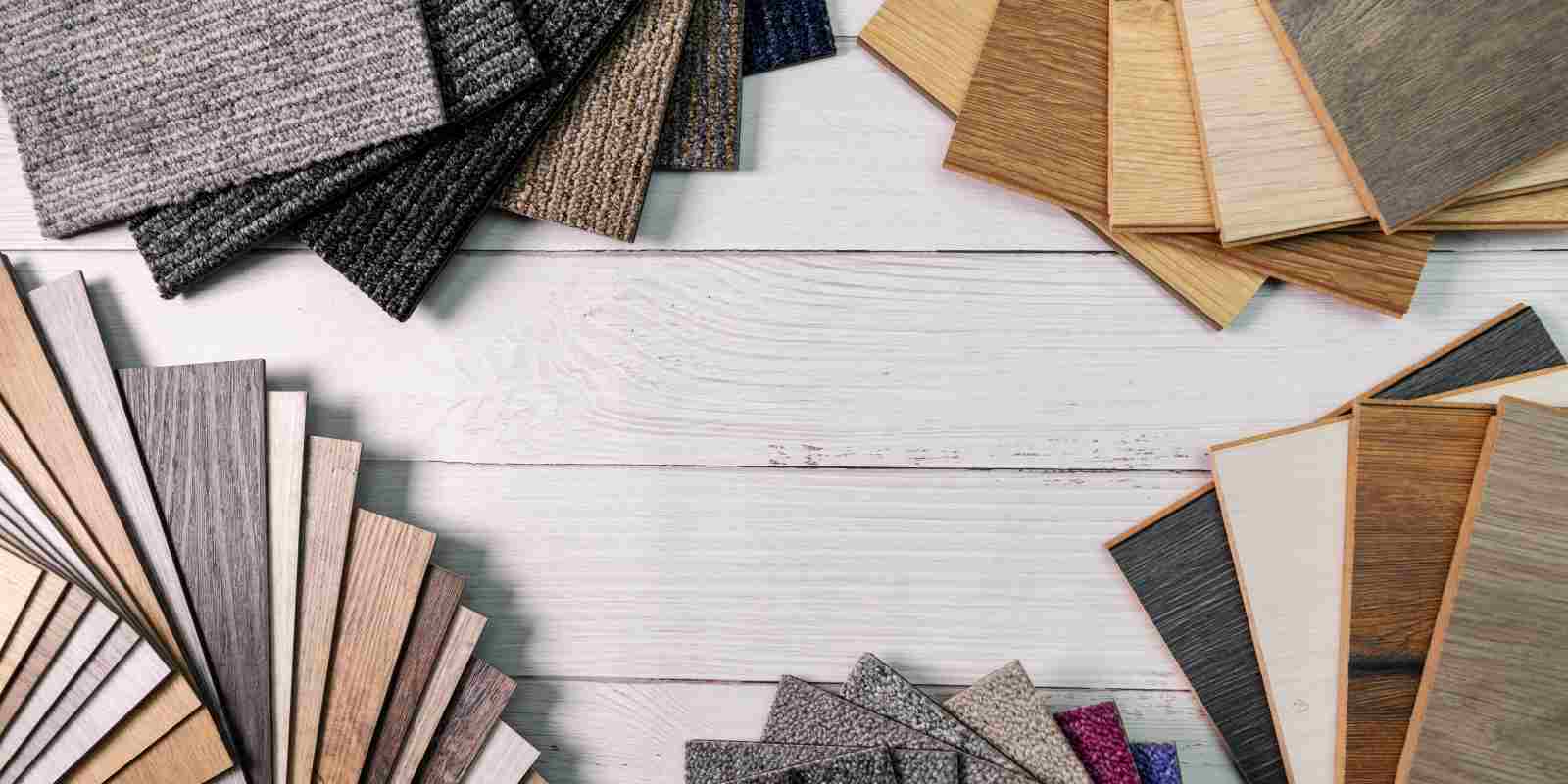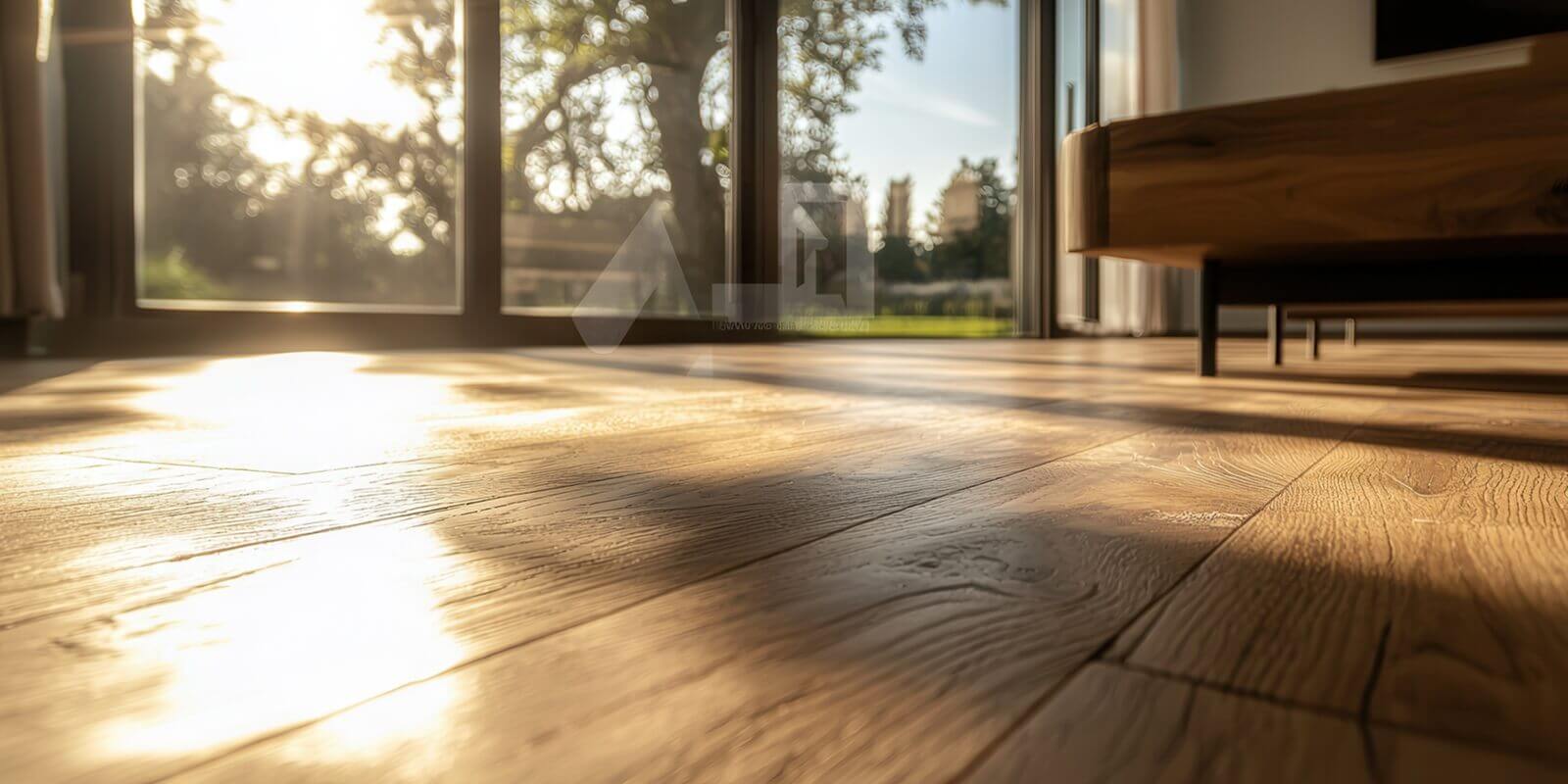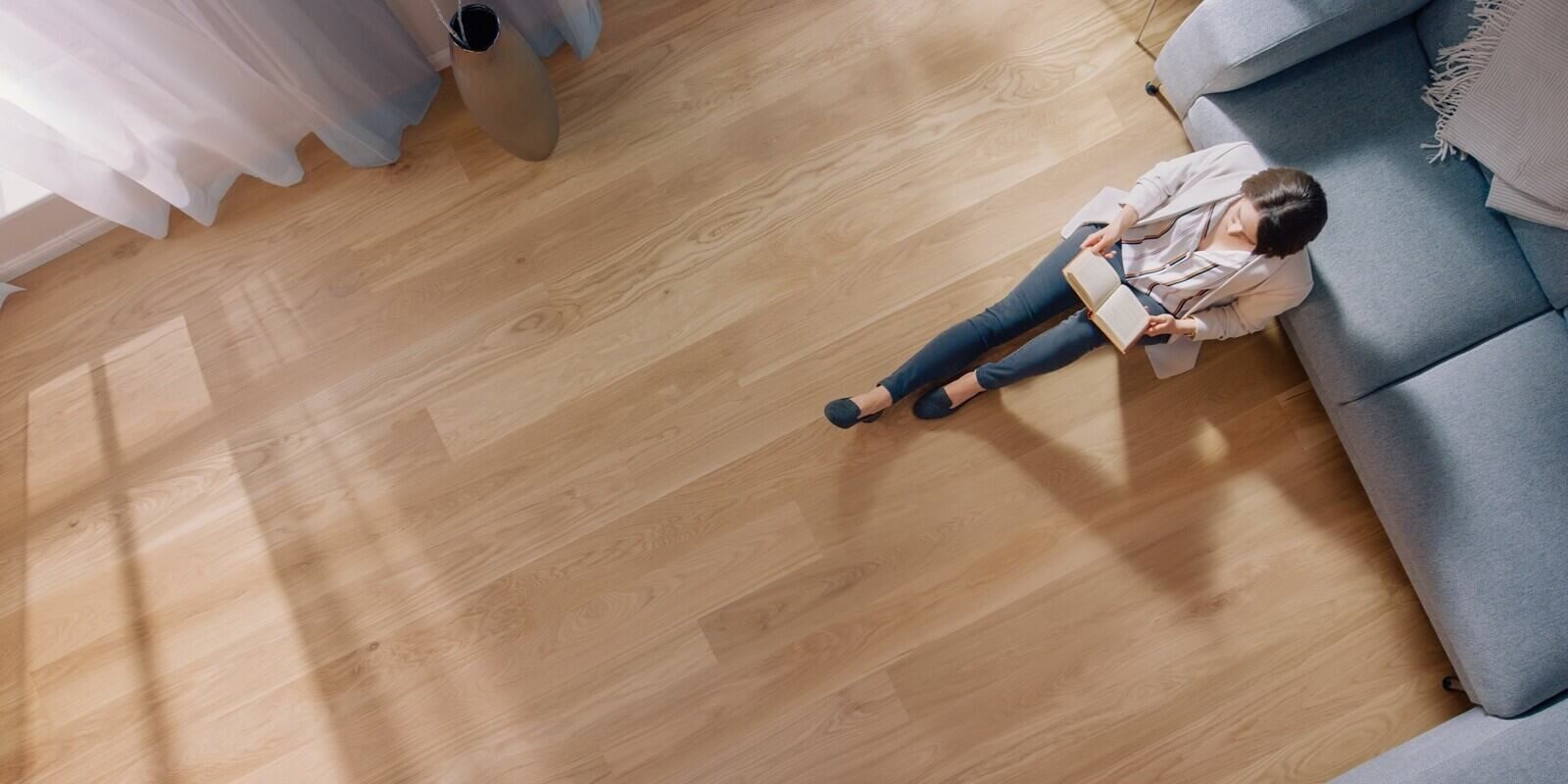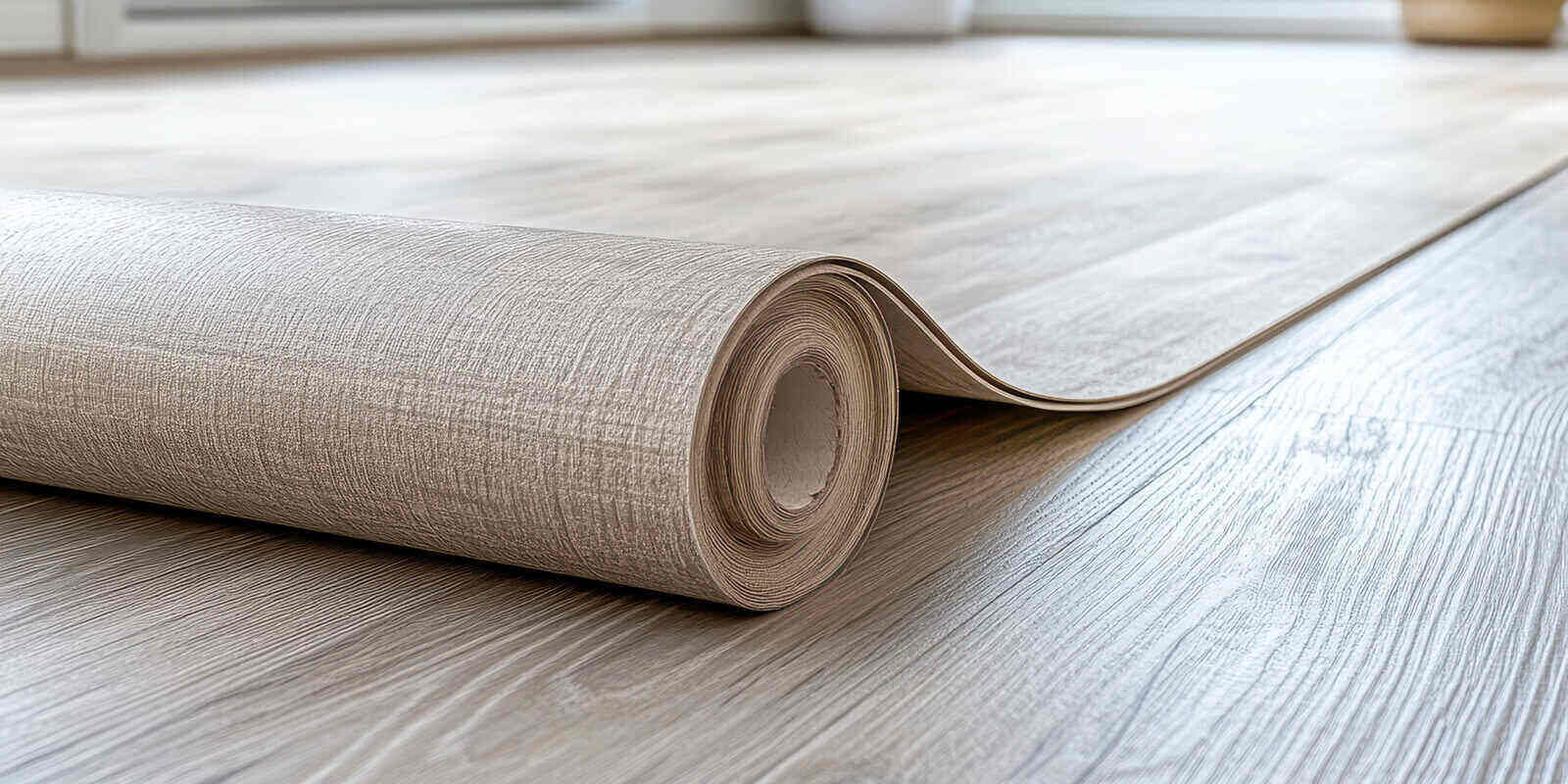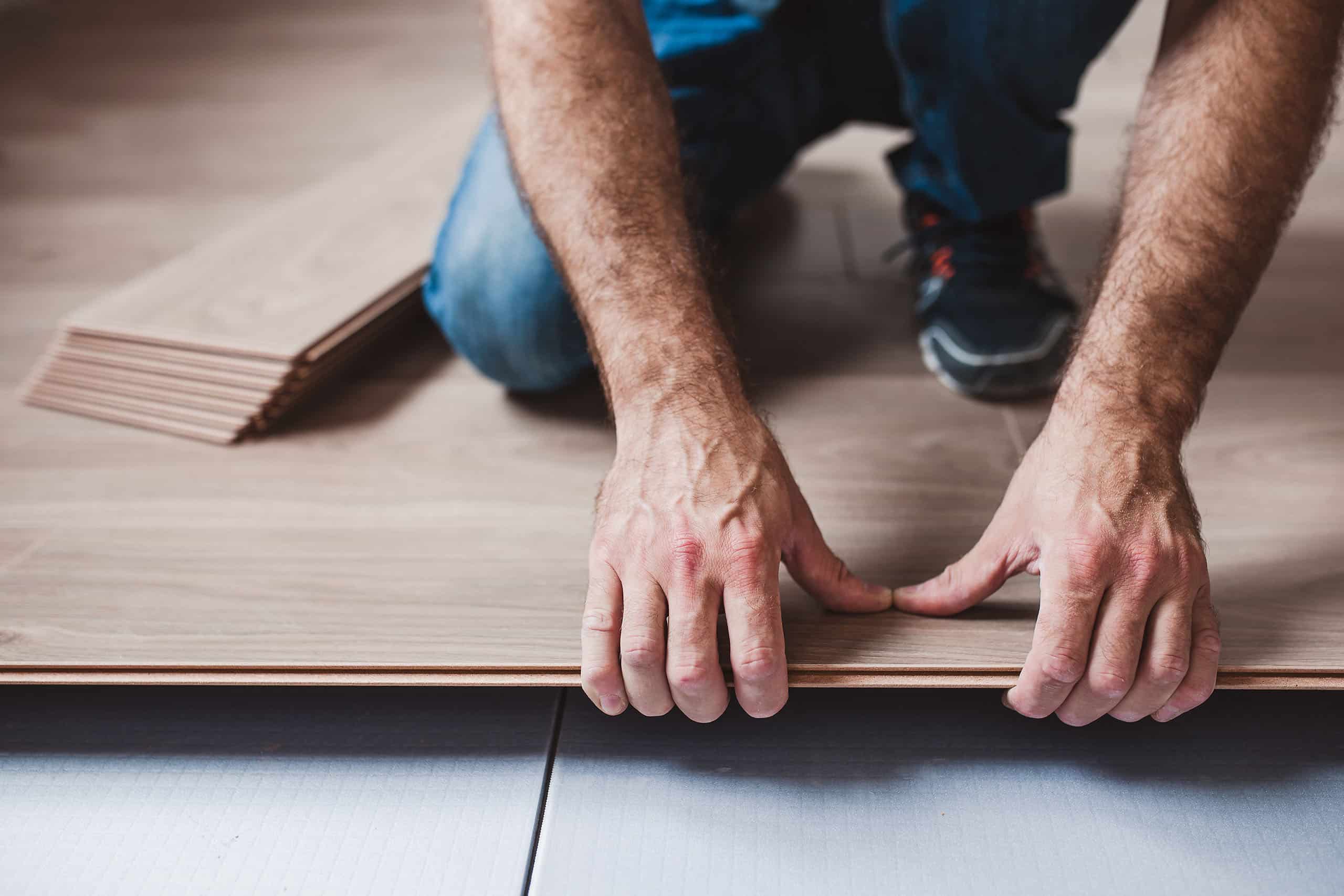Flooring in your Virginia Beach home is more than a practical necessity or an everyday convenience. Flooring also has an essential role in shaping the desired style, energy, and functionality of the home. When buying a new home or remodeling a current one, several factors should guide the decision of which material, texture, and color will work best in the space.
The right flooring materials will align with the homeowner’s vision for their design while also matching their daily lifestyle, budget, and specific needs. This guide offers sample questions that can help Virginia homeowners understand their flooring installation needs and choose the material that makes the most sense for their project.
Will the floor be exposed to moisture?
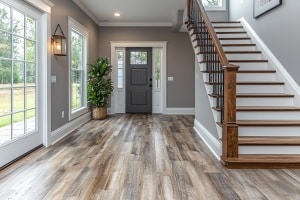 Certain types of flooring can withstand moisture better than others. Likewise, some materials, such as natural hardwoods, should be avoided in high-moisture environments such as bathrooms or mudrooms. Fortunately, alternative materials can achieve the same aesthetic while maintaining durability. For example, many varieties of vinyl planks are a moisture-resistant flooring solution that mimics the look of expensive wood or stone flooring.
Certain types of flooring can withstand moisture better than others. Likewise, some materials, such as natural hardwoods, should be avoided in high-moisture environments such as bathrooms or mudrooms. Fortunately, alternative materials can achieve the same aesthetic while maintaining durability. For example, many varieties of vinyl planks are a moisture-resistant flooring solution that mimics the look of expensive wood or stone flooring.
When choosing materials for bathroom, basement, and kitchen floors, homeowners can substitute natural materials for more resistant alternatives to avoid costly repairs later.
Will there be pets in the house?
Pets cause wear and tear on flooring materials over time, impacting their visual appeal. For example, solid hardwood can scratch easily, leaving obvious marks and exposing the unprotected, bare wood. More durable flooring materials like plank vinyl, laminate, porcelain, or tile may be preferable in homes with large pets, especially in the rooms they frequent.
Is the home used to entertain guests?
Homes that frequently entertain may require flooring materials that strike a balance between stylish aesthetics and wear resistance. In homes with regular gatherings, spills, scuffs, and scratches can affect certain types of flooring, especially solid hardwood. Not only does hardwood damage more easily, but it also requires more frequent maintenance.
Many homes use strategically placed rugs or runners to protect hardwood floors in high-traffic areas. Alternatively, many homeowners choose a sturdier vinyl or laminate flooring material that mimics the appearance of hardwood with lower maintenance requirements.
What is the intended mood of the room?
The purpose of the room can determine the best choice of flooring based on the intended mood. For example, basements may need moisture-resistant flooring while bedrooms and living rooms usually prioritize comfort and warmth. In those cases, options such as engineered hardwood, luxury vinyl, or carpet may be preferred. Bathroom and kitchen floors should look beautiful, but these high-traffic, high-moisture areas warrant materials with enough durability to withstand daily use.
Beyond the look of the raw materials, homeowners should also consider the potential patterns and styles possible with material variations. For example, tile can be customized in a variety of patterns, textures, and colors. Vinyl and laminate floors can simulate other materials. Lighter floors can make spaces feel more open and inviting, while darker floors can increase the contrast and richness of the color scheme and create a more intimate atmosphere.
Many homeowners struggle to balance style and functionality in their flooring to achieve the desired mood in their rooms, while knowing the decision is important. The practical luxuries of stone and the rustic warmth of hardwood create vastly different impressions. The right material is essential to strike the intended balance between style and function, matched to the needs of each space.
What is the budget for the flooring?
Budget impacts the viability of flooring material options. When budgeting their flooring projects, homeowners should consider not only different material costs but also installation and maintenance costs. Luxury materials often come with higher up-front costs as well as more frequent upkeep.
Some materials, like vinyl and laminate, tend to be more affordable, while luxury hardwoods and natural stone are often more expensive. Even materials of the same type can be cheaper or pricier depending on the source and brand. Tile, for example, can be high-end or affordable depending on the style, installation process, and specific materials used.
What is the Flooring Installation Process?
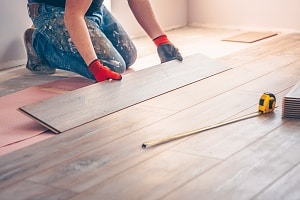 Many DIY home remodelers and designers underestimate the difficulty of installing tile, hardwood, laminate, and other materials. While some situations are more DIY-friendly than others, professional flooring installation contractors in Virginia Beach, VA, help homeowners match the material to their intended room’s ideal mix of style and functionality. Floors that need to be leveled first can be far less problematic for a professional than a DIY homeowner.
Many DIY home remodelers and designers underestimate the difficulty of installing tile, hardwood, laminate, and other materials. While some situations are more DIY-friendly than others, professional flooring installation contractors in Virginia Beach, VA, help homeowners match the material to their intended room’s ideal mix of style and functionality. Floors that need to be leveled first can be far less problematic for a professional than a DIY homeowner.
Get in Touch with Our Flooring Installation Experts in Virginia Beach, VA
Choosing the right flooring material for a room or home requires knowledge of how to balance function, style, and budget while sourcing the best materials for the space. Homeowners can make an informed decision by considering how each room will be used, who will use it, and whether durability or design is a higher priority.
At Yates Flooring, our experts know how to choose the right materials to turn a homeowner’s vision for their floor into a stylish and practical reality. Contact our team today to learn about the best flooring materials for your situation, including how to scratch-proof, spill-proof, and life-proof your flooring investment for the foreseeable future.

